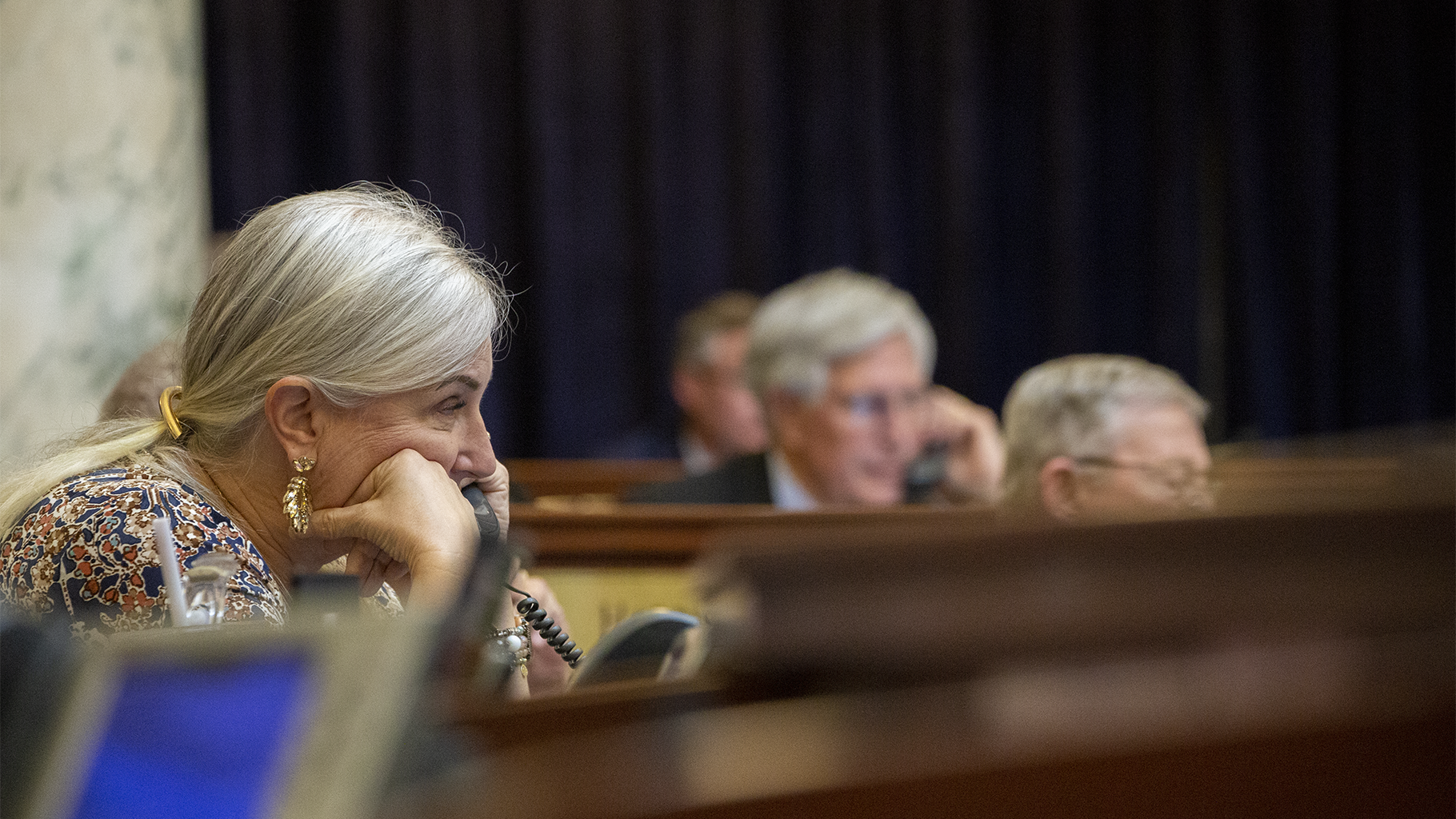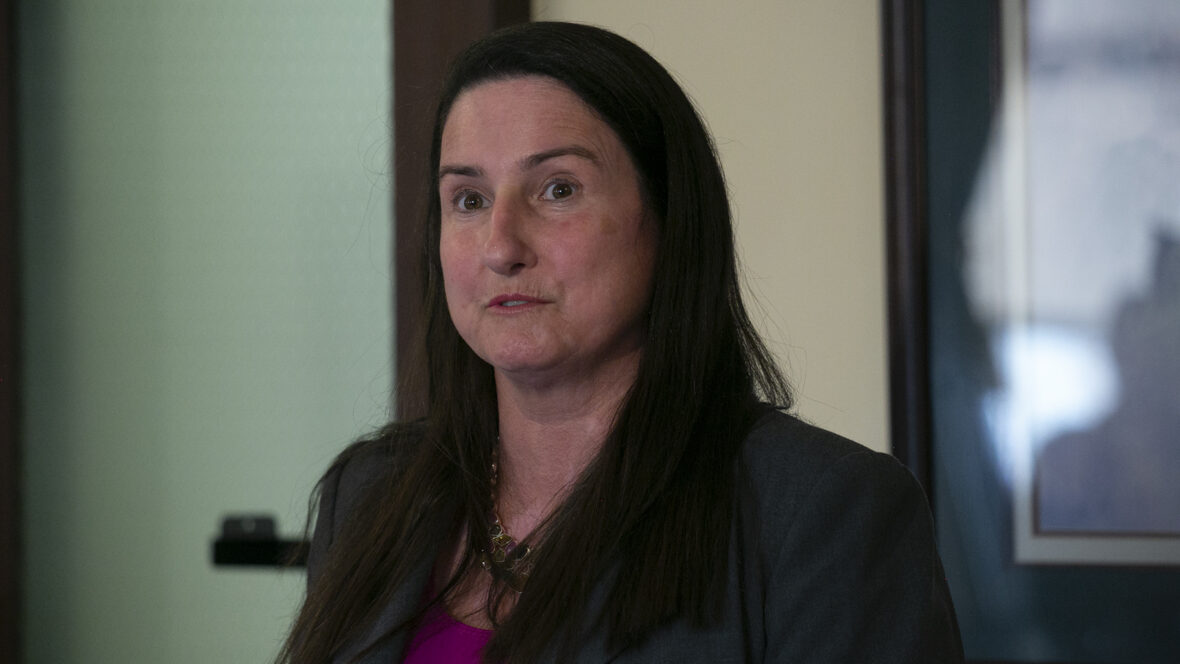
The big budget battle of 2022 didn’t have to do with higher education, or salaries and benefits for K-12 employees, or even all-day kindergarten.
It had to do with (checks notes) libraries.
In a legislative session that began with a $1.9 billion surplus, lawmakers worked until nearly midnight Friday haggling over $3.5 million in the Idaho Commission on Libraries budget. Ultimately, the impasse broke after the Joint Finance-Appropriations Committee held a highly unusual Friday night meeting. JFAC had to modify the budget somehow, so it trimmed (checks notes again) $100 from a digital training line item.
It’s a strange and unexpected endgame in the 2022 legislative session — which will resume and possibly conclude Thursday. Lawmakers will return to the Statehouse after a six-day recess, which would allow them to override any gubernatorial vetoes. (Gov. Brad Little signed the libraries budget bill Thursday morning, before the session resumed.)
The library logjam demonstrates that budget debates often have nothing to do with dollars. At the Statehouse, budget bills become vehicles for policy debates that don’t necessarily relate to the budgets themselves.
Such is the case here.
Because they were worried about — or, critics will say, obsessed with — pornography in public libraries, lawmakers targeted technology grants for telehealth programs. The two don’t have much to do with the other, except that the telehealth programs and the purported library smut would have coexisted under the same roof.
Even budget “intent language,” designed to ensure that the technology projects would operate under state law and the federal Children’s Internet Protection Act, wasn’t enough to save the grants.
Little proposed the $3.5 million federal library grants in the first place. And lest you think the Legislature suddenly got religion about spending federal money, a host of budget decisions prove otherwise:
- A steady diet of dollars for school nutrition: $74 million for the rest of this school year, and another $74 million next year.
- A $50 million Empowering Parents grants program, which will help families pay for laptops, internet or other home education needs.
- A $1,000 bonus for every K-12 employee, with a price tag of $36.7 million.
- An additional $36.5 million for the teacher career ladder.
All proposed by Little. All federally funded. And all approved by the Legislature.
One of the big recurring themes of the 2022 session was this historic infusion of Uncle Sam coronavirus cash, stuffed into seemingly every corner of state government. The library technology grants happened to be a federally funded program affixed to the wrong budget bill at the wrong time.
At the risk of belaboring the obvious math, the Legislature put big money into programs that dwarf the $3.5 million libraries line item.
- Factoring in the federal and state dollars, lawmakers put $104 million into the teacher salary career ladder.
- Lawmakers made a big investment in health benefits for all K-12 employees: $75.5 million in one-time money, to encourage schools to sign on with the state insurance plan, and $105 million in ongoing spending to beef up benefits.
- It took a while for them to work out the details, but lawmakers agreed to put another $46.6 million into literacy programs — money that could go into all-day kindergarten.
- Lawmakers provided an additional $25 million of state general fund money to the state’s four-year college and universities.
Little proposed all of this, and the Legislature went along, dollar for dollar.
By any measure, this was a big year for Little on the education front. He pretty much ran the table on K-12 and higher ed issues — and if he wants to go on the campaign touting his record on education, he has plenty of specifics to back him up.
By the same token, this was a disastrous session on the education front for the budget hardliners, the disciples of the Idaho Freedom Foundation. The foundation opposed the health insurance initiative and the increased literacy budget, and took a beating on higher education — even after one of its loyal legislators, Rep. Ron Nate, R-Rexburg, used the foundation’s talking points verbatim in an attempt to cut the budget.
Even the library budget isn’t a win for the Freedom Foundation — not after its leaders spent Friday night on social media making the quixotic argument that the Legislature should simply defund the agency entirely.
That didn’t happen. But $3.5 million is a sharp gash in the library budget, which now comes to $7.7 million in state and federal money. By comparison, the 2020 Legislature cut $2.5 million from higher education — and an overall budget that approached $630 million.
While steeped in symbolism, the library cuts are also significant.
On Friday night — before a library budget came up for its third House floor vote in two days — Rep. Caroline Nilsson Troy actually talked about dollars. In what could be her last floor debate, the retiring JFAC vice chair noted that all the cuts came from one-time federal projects, not ongoing state spending.

“We have not reduced one cent from the general fund,” said Troy, R-Genesee. “We have not cut our commitment as a state to this organization.”
But during an end-of-session news conference Monday, House Minority Leader Ilana Rubel mused about what she had seen unfold on the floor — and why it was the libraries’ turn on the chopping block.
“You can just never predict in any given year what word salad is going to emerge as the social hysteria point du jour,” said Rubel, D-Boise. “Somewhere out there there’s a boiler room that gins up these issues, and I wish I knew where it was.”
To see this Legislature deadlock over a libraries budget was unexpected — but not shocking.
Kevin Richert writes a weekly analysis on education policy and education politics. Look for his stories each Thursday. Due to the timeliness of the topic, this week’s analysis was published on Wednesday, March 30.
